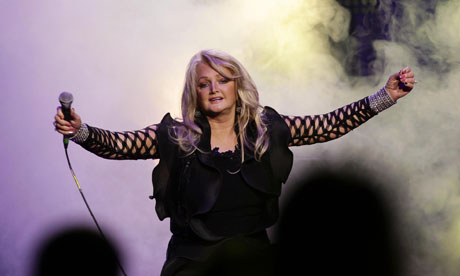
The first week of March is always a time of unwavering pride for me, as it falls between celebrations of the two parts of my identity I hold most dear. On 1 March, I get to sing Land of my Fathers as my beloved Wales commemorates St David's Day. Then just over a week later, I embrace my feminist wiles as the whole world marks International Women's Day. Yes: my name is Ellie Mae O'Hagan, and I am a Welshwoman. Fy enw i ydy Ellie Mae O'Hagan, a mi rydw i'n Gymraes.
Alas, this year's rejoicing was besmirched by the unfortunate news that a group of my fellow countrywomen were turned away from Harrods because they were wearing traditional Welsh dress. "You can't come in here dressed like that," the doorman is reported to have said – an attitude thankfully dissimilar to that of my local Bangor nightclub, the Octagon, where an array of celebratory regalia is welcomed (yes this is just me shoehorning in a nod to my hometown). Eventually the women were allowed in, but allegedly only once they had threatened to embarrass the store.
It is peculiar that the story gained so much coverage, but it did make me consider my own identity. We Welshwomen do OK in the grand scheme of things: I will never face serious discrimination on the basis of my nationality; but mine is an odd little identity because it is so often the subject of ridicule. Welsh women are often depicted as possessing a mix of girlish silliness and parochialism, which sees them being almost paternally adored like Catherine Zeta Jones ("We're country people, really.") and Katherine Jenkins ("A girl from Neath"), or treated as ditsy and homely like Joanna Page's character in Gavin and Stacey. I couldn't help but pick up on a note of amusement in the Daily Mail's coverage of the Harrods debacle, laden as it was with images of women in traditional Welsh clothing at sophisticated London landmarks.
If I seem oversensitive, it's probably because I am. My fellow Cymry women may also attest to the level of mocking that greets you as soon as you arrive in England's green and pleasant land. Everything from imitating the twang in one's accent to belittling the opinions of Welsh women as unworldly: pretty much daily occurrences for a Welshy living on the wrong side of the border. I even find myself doing it: when my mum tells me the news from our village at home (like a swan giving birth to cygnets on the local pond last year), I sometimes chuckle that such trivial events are considered noteworthy. Then I catch myself and cringe at the idea that I might find my life, hopes and dreams more significant, simply because now they happen to be taking place in a city.
On this International Women's Day, I'll be considering what it means to be a Cymraes – particularly as Britain will be represented by the wonderfully Welsh Bonnie Tyler at this year's Eurovision. Tyler's sortie represents the Wales I know: a country of music, creativity, and women who are not simpletons, but natural and passionate. Indeed one of my favourite historical icons, Boudicca, had a strong connection with Wales. When I think of my Welsh womanhood, I think of Celtic unruliness like hers, not the "country girl" narrative that is often foisted on the Welsh darlings of the media by the tabloid press.
A fortnight ago I went walking in the wild Llanberis Pass in Snowdonia with my loved ones. It reminded me – as it does every time I return home – of how lucky I am to have been born somewhere so untouched by civic life that one only has to travel a few miles to feel totally removed from relationships, work, demands made on our appearance and the other pressures that inhibit women from just being. Standing amid those mountains with only a few people for company, one returns to a more fundamental, liberated sense of self that daily life tends to erode away. It would be wonderful if today in particular, all women could recapture that sense of self, even just for a little while. Maybe, even, it would be revolutionary.

